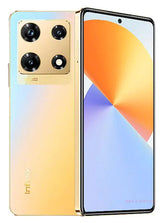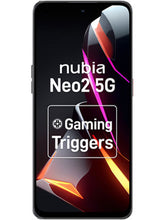Mobile Phones Revolution and its effects
Introduction
We have all been there. You are out in the middle of nowhere and you need to make a call or send an SMS message. But how do people communicate back then? Do they even use phones? The answer is yes but not in a way we think today. In fact, there were some very special devices invented in order to make these calls possible!
First mobile phone invented
The first mobile phone was invented in 1973 by Martin Cooper, who was working as an engineer at Motorola. It was a car phone called the DynaTAC and cost $3,500 (roughly $9000 today). It weighed 2.5 lbs and had a battery life of 24 hours on standby or 12 hours when using it for talking or listening to music.
The DynaTAC became such a success that it led to other companies developing similar products—the first model from Motorola itself came out two years later named the StarTAC (short for “strong talker”).
Technology comes to mobile phones
You might not realize it, but technology has come to mobile phones. The way you communicate with others and work has changed as a result of this revolution.
Technology has also affected how we play games, learn new things, live our lives and even think about the world around us.
Globalization of mobiles
The globalization of mobile phone technology and networks has led to the proliferation of mobile phones around the world. Mobile phones provide access to information, entertainment and communication services on a global basis.
Mobile phone service providers have expanded their operations into many different countries across the globe and have become leaders in providing these services. This has created an environment where companies can offer their customers a wide variety of products at competitive rates with no borders or restrictions on availability or pricing structure imposed by governments or other authorities like public utilities companies which regulate electricity rates based on demand levels from residential consumers versus commercial users who have higher demands for power usage (e.g., businesses).
Mobile phones becoming a necessity
Mobile phones are a necessity for many people, businesses, government agencies and schools. They have become so important that mobile phones are now a part of everyday life for millions of people throughout the world.
Mobile phones are used by:
Businesses to conduct business transactions (e.g., sales) and manage their operations;
Government agencies to collect taxes or perform other public services;
Schools to keep up with the latest information about schools' programs and activities;
Hospitals in emergency situations where there is no access to landlines or fixed lines such as dial-up internet connections at home or office locations
Smartphones arriving into the market
Smartphones are a new technology that has been around since the early 2000s. They're more powerful than desktop computers, and they can be used to access the internet and store data.
Smartphones have touch screens, cameras and other features like apps that you wouldn't expect from a phone!
Effect on children
Children are more likely to be exposed to the radiation from mobile phones than adults, and they have a higher risk of developing brain tumors.
In addition, children may be more likely than adults to hold their phone close to their bodies or put it on speakerphone mode when talking with friends. This can increase the exposure time for the phone's radio frequency transmitter (RFD) signal, which is what causes most of these health problems in kids: headaches, fatigue and sleep disorders; difficulty concentrating or remembering things; ringing in ears; hearing loss (hearing loss is known as tinnitus); learning disabilities such as dyslexia
Mobile phones have revolutionized the world
You may be wondering how the mobile phone has changed the world. Well, let me tell you:
The mobile phone has made the world a smaller place. You can now communicate with people from all over the globe through text messages and social media platforms such as Facebook and Twitter.
Mobile phones have changed how we communicate with each other in many ways (for example, using WhatsApp). They allow us to stay connected even when we're not together physically or if our internet connection is poor or nonexistent (like during natural disasters).
Mobile phones have also changed how we work because of their convenience factor—you can work anywhere at any time! No more having to wait until Monday morning at 9am sharp before starting your boring job tasks; now you can get started right away! This means less stress for everyone involved because there won't be any waiting around either way...
Conclusion
Mobile phones have revolutionized the way we live. It is a necessity to have one in our lives and with the world being connected, there is no better time than now!








